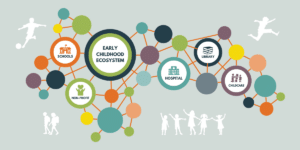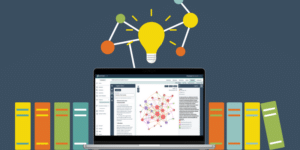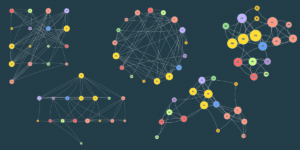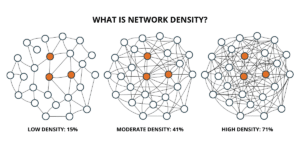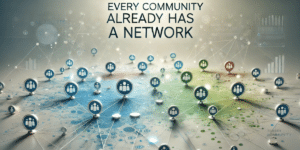How to Survive Change: Trust is the Key
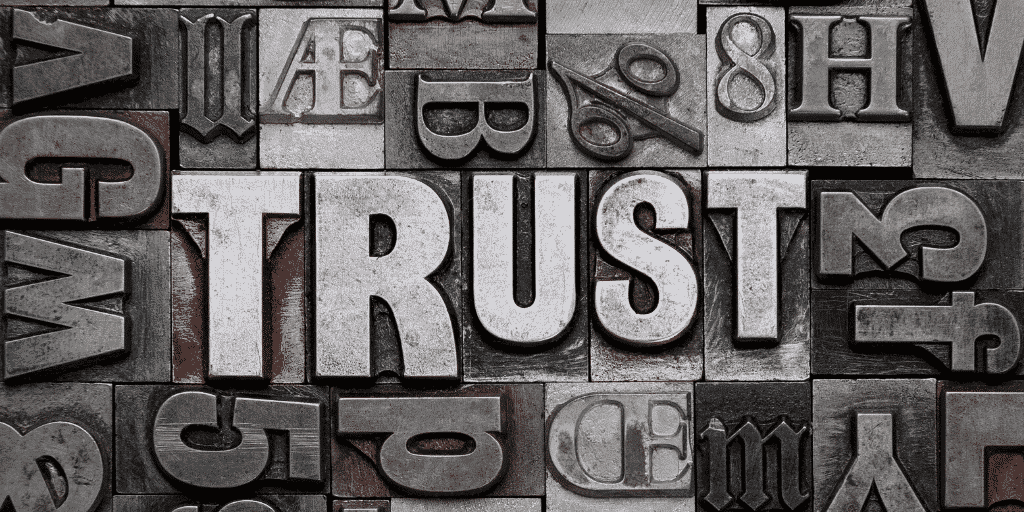
My wife and I have a tradition of watching the sunrise together every year on our anniversary. The first time was on the day we got married. Like most couples, we had planned to spend the day apart until meeting at the end of the aisle. But before we went our separate ways that morning we decided to hike up a mountainside and share a quiet moment together watching the day begin.
The tradition stuck, and this past month we celebrated our 12th anniversary with our 13th sunrise. Like most years, our predawn conversation included a lot of fond reflection on the milestones of our marriage—laughing at the silly kids we used be and celebrating all the depth and growth we’ve seen unfold in one another over the years.
This year, I found myself feeling particularly grateful for those two silly kids—wondering how, in the midst of all the raucous chaos of young adult life, we somehow managed to recognize in one another the potential for what our marriage has ultimately become. When I think about the brash, confused, inexperienced young man that I was at the time we decided to get married, I feel like it was nothing short of dumb luck that I stumbled into such a wise and well-aligned life choice for myself. To this day I’m not quite sure what inspired my wife to embark on this journey with me, but here we are nonetheless.
We had no idea how to survive change!
The truth is, we had no idea what we were doing. We couldn’t see where our life together would lead us, and there was no way for us to be sure it would work out at all. So what was it that led us to make such a reckless decision and bind our paths together without really knowing how our relationship might change over time?

The thing is, everything changes over time. Change is the only thing we can invariably count on. To maintain a relationship over time, we have to change too. Like it or not, it’s built in. The greater the level of intimacy, the deeper the transformation needs to be to stay connected. So when we commit to a relationship, we’re really just agreeing to change in the same direction, right? How can we possibly agree to that?
When we’re feeling out a new relationship—trying to decide if it’s worthy of that kind of commitment, it’s hard to know what we can gauge in the moment to help us know if we’re even capable of long-term compatibility. It’s the main thing that makes commitment so confusing and hard. We know it can’t be fully rooted in who we are and how we see the world, that will undoubtedly evolve over time. It can’t be completely dependent on a shared vision for where we’re headed, there’s no way we’ll always agree on the same path forward or even the same goals. So with all that uncertainty, what can we really lean on to make a decision like that and know that it’s going to last?
Well, it’s taken me 12 years to really understand what my wife and I were both feeling but not fully seeing at the time. For all the time it’s taken me to figure this out, this might seem like a remarkably simple revelation, but here it is: It was trust.
Trust is a bulwark in a sea of change.
Not just ‘trust’ like telling the truth or following through on what you say. Those are important, but goodness knows we all need a little leeway in those categories on occasion. No, this is a trust that runs deeper than that. In order to fully commit to a relationship, you need to trust that the version of yourself the other person will continually inspire you to become is actually something you’ll want to be—even when neither of you can know exactly what that will look like.

It’s putting your fate in someone else’s hands. Seriously, that requires trust with a capital T! And it’s most definitely the secret ingredient to a successful marriage. Now that we’ve been around long enough to see this play out a few different ways among our friends, the marriages that have it are the ones that make it. Every time.
Trust matters in all your networks and relationships.
So why am I spilling all my marriage survival tips here? Well, Networks, when they involve human beings, are not just complex systems of nodes and lines, they are complex systems of relationships. Looking at a marriage makes it easy to see the subtleties of this dynamic, but the role trust plays in relationships is the same at every scale. It doesn’t matter if you’re talking about individuals, teams, organizations, communities, or entire nations. It doesn’t matter if they’re short-term, long-term, or anything in between. All relationships will at some point, invariably be tested by change. The level of trust in the relationship is a direct indicator of its capacity to adapt in the face of that change.
It’s why, here at Visible Network Labs, trust is one of the main indicators of alignment we use in our network methodology. It’s why our team has spent the last 20 years developing tools to measure trust with scientific precision, processes to build trust into our network analyses, and strategies to let trust drive the way build networks within our communities.
We know that to truly understand a network, we need to acknowledge that every node, every line, every relationship carries its own unique capacity to adapt and evolve over time, and measuring trust can help us understand what that might look like—challenge after challenge, milestone after milestone, and occasionally… Sunrise after sunrise.


